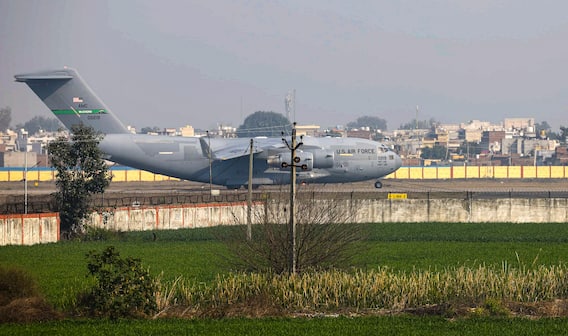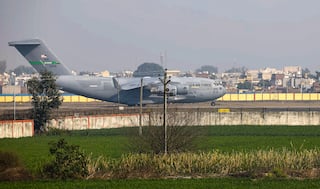Israel-Hamas War: Children Most-Affected As Hunger Claims Lives In Northern Gaza
The attack on 118 civilians waiting for food aid near Gaza City last month, triggered global outrage over the humanitarian crisis.

Amid the prevailing risk of famine in war-torn Gaza, children are now dying of hunger besides bombardment from Israeli forces, as reported by news agency AP. Hunger is probably the second biggest reason for the enclave's dreadful situation. The attack on 118 civilians waiting for food aid near Gaza City last month, triggered global outrage over the humanitarian crisis.
The officials have been warning about the risk of famine in the Palestinian territory that’s been under Israel’s bombardment and offensives for the past five months. According to AP, hunger is most acute in northern Gaza, which has been isolated by Israeli forces and has suffered long cutoffs of food supply deliveries.
As per Health Ministry data, at least 20 people have died from malnutrition and dehydration at the north’s Kamal Adwan and Shifa hospitals, AP reported. The data further revealed that most of the dead are children, including ones as old as 15, as well as a 72-year-old man.
It is pertinent to mention that vulnerable children are also starting to succumb in the South, where access to aid is regular. Speaking to AP, one of the senior doctors said that at the Emirati Hospital in Rafah, 16 premature babies have died of malnutrition-related causes over the past five weeks.
“The child deaths we feared are here,” Adele Khodr, UNICEF’s Middle East chief, said in a statement earlier this week, as quoted by AP. Israel majorly closed the entry of food, water, medicine, and other supplies after launching its assault on Gaza after the October 7 attack on southern Israel. It was only permitted to trickle aid trucks through two crossings in the south.
Israel has blamed the rapid increase in hunger in Gaza on U.N. agencies, stating that they have failed to distribute supplies piling up at Gaza crossings. According to AP, UNRWA stated that Israel restricts some goods and imposes cumbersome inspections that slow entry.
Trending News
Top Headlines












































